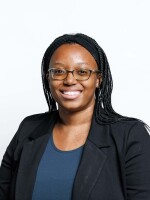Religious studies at UNC Asheville hasn’t always had its own department. In the early 2000s, it was considered a branch of the philosophy department and offered to students as a minor.
That was until the university hired Rodger Payne.
Payne came to UNCA from Louisiana State University, where he was the chair of a joint philosophy and religious studies department.
By 2009, Payne had developed a religious studies curriculum, hired another professor and fully launched UNC Asheville’s first religious studies department.
On Thursday, Chancellor Kimberly van Noort announced a proposal to eliminate both religious studies and philosophy from the university.
Van Noort also suggested cutting the drama and ancient mediterranean studies departments, as well as French and German language concentrations. She said this was a last resort attempt to ease a $6 million budget shortfall, brought about by years of declining enrollment.
But Payne said van Noort’s decision feels like an attack on the university’s core humanities.
“The idea that if you’re going to get a liberal arts degree that you’re now going to do it without encountering philosophy, the classics, religious studies — just seems absolutely unconscionable to me,” Payne said. “That’s the core of who we are as a liberal arts institution. I’m not sure we’re going to be able to claim that title anymore.”

According to the UNC System, UNC Asheville is the state’s “designated liberal arts and sciences campus.” It’s one of the state’s three public universities located in the mountains and has a student body of about 2,900 undergraduate students.
Over the past five years, UNC Asheville’s enrollment has dropped 25%. Van Noort said this caused the university to lose over $11.1 million in tuition and state enrollment revenue.
“For too long, we didn’t do enough to evaluate and update our academic offerings in line with student needs,” van Noort said in a video statement to campus. “We’re now at a turning point. While not in a crisis, we have a civic and ethical responsibility to reinforce and grow the university for generations of students, families and communities — both today and in the years to come.”
According to van Noort, students have “consistently under enrolled” in the four departments and two language concentrations. From 2020-2023, an average of 25 students graduated from the programs. About 70 students are currently majoring in them.
However, Payne said the impact of these programs at UNC Asheville is much larger than enrolled or graduated students.
“To reduce the value of a discipline simply because of the number of majors that it has seems ludicrous to me,” Payne said. “It’s not about how many majors you’re producing, but it’s about the effect you’re having overall on education. That’s really what the foundation of the liberal arts is all about — that interdisciplinarity.”
Payne’s courses frequently combine religious studies with other subjects. His first year seminar combines religion and science, and he’s also taught a history-based course that analyzes religion in the pre and post-Civil War eras.
“(One student told me) ‘These were the two most important courses I think I’ve ever taken, because these are the stories that we’re not hearing otherwise. And I learned more about my own country than I’ve learned in history courses,’” Payne said.
Since van Noort’s announcement, Payne’s inbox has been filled with emails from previous and current students sharing how much religious studies impacted their time at UNC Asheville.
“I’ve been hearing from alums, majors, minors, even students who just took two or three courses,” Payne said. “Who said these were still among the most important courses that I took at the university. Most folks are quite upset that (religious studies) seems to be going away now.”
Chancellor van Noort said any students currently enrolled in cut programs will be able to complete their degrees. However, no new students will be able to enroll in the eliminated programs.

The university will later share details on a “teach out” plan for faculty to provide the necessary courses. It’s unclear how many faculty members will be retained.
At least 12 faculty members at UNC Asheville have opted to retire as part of the UNC System’s “faculty realignment program.” The program gives tenured faculty incentives to retire early and is limited to universities with declining enrollment.
The other universities in the program are East Carolina, NC Central, UNC Greensboro and Winston-Salem State. UNC Greensboro’s chancellor announced a program cut proposal of his own earlier this year.
Van Noort said her cuts will allow the university to tailor its course offerings to student demand in “relevance to 21st-century society.” She’s set a goal to have a 3,800 to 4,000 student body by 2030.
“These students will be drawn to UNC Asheville’s model of an innovative university of the future — known for its student-centered focus, liberal arts and sciences foundation, hands-on learning, technology-driven solutions, and career-ready emphasis,” van Noort said in a statement.
To Payne, the key to bringing in more students shouldn’t be to divest from programs, but to invest in them.
“Go out and hire some of the top people in the country,” Payne said. “So that students will say ‘I want to go to UNC Asheville to study at one of the best drama departments in the country or one of the best philosophy or religious students departments.’ Bring in more students, that’s the way you do it.”
Van Noort plans to submit her proposal to the UNC Board of Governors to review at its July meeting. The board and UNC System President Peter Hans must approve the proposal before it can be implemented.







